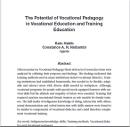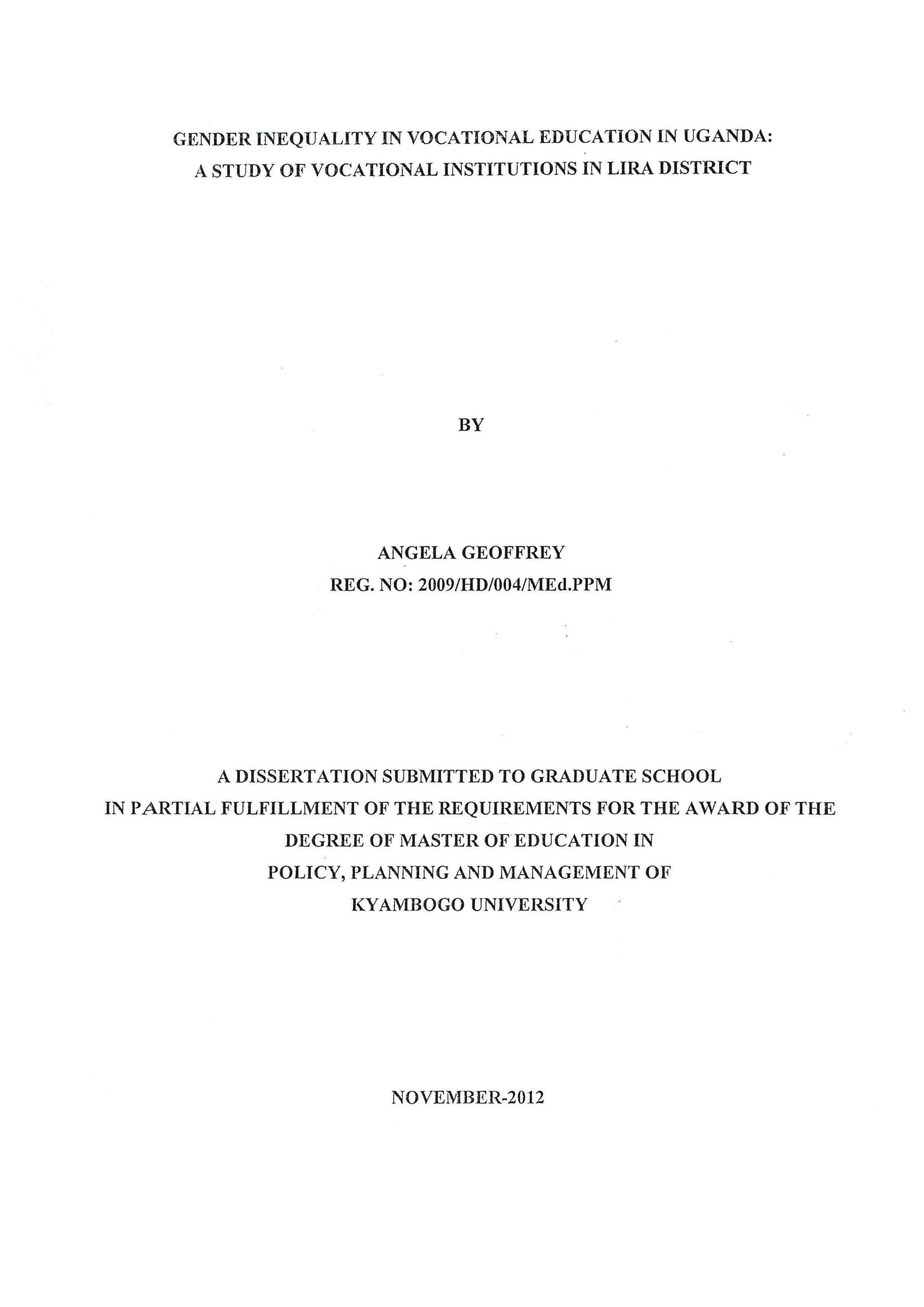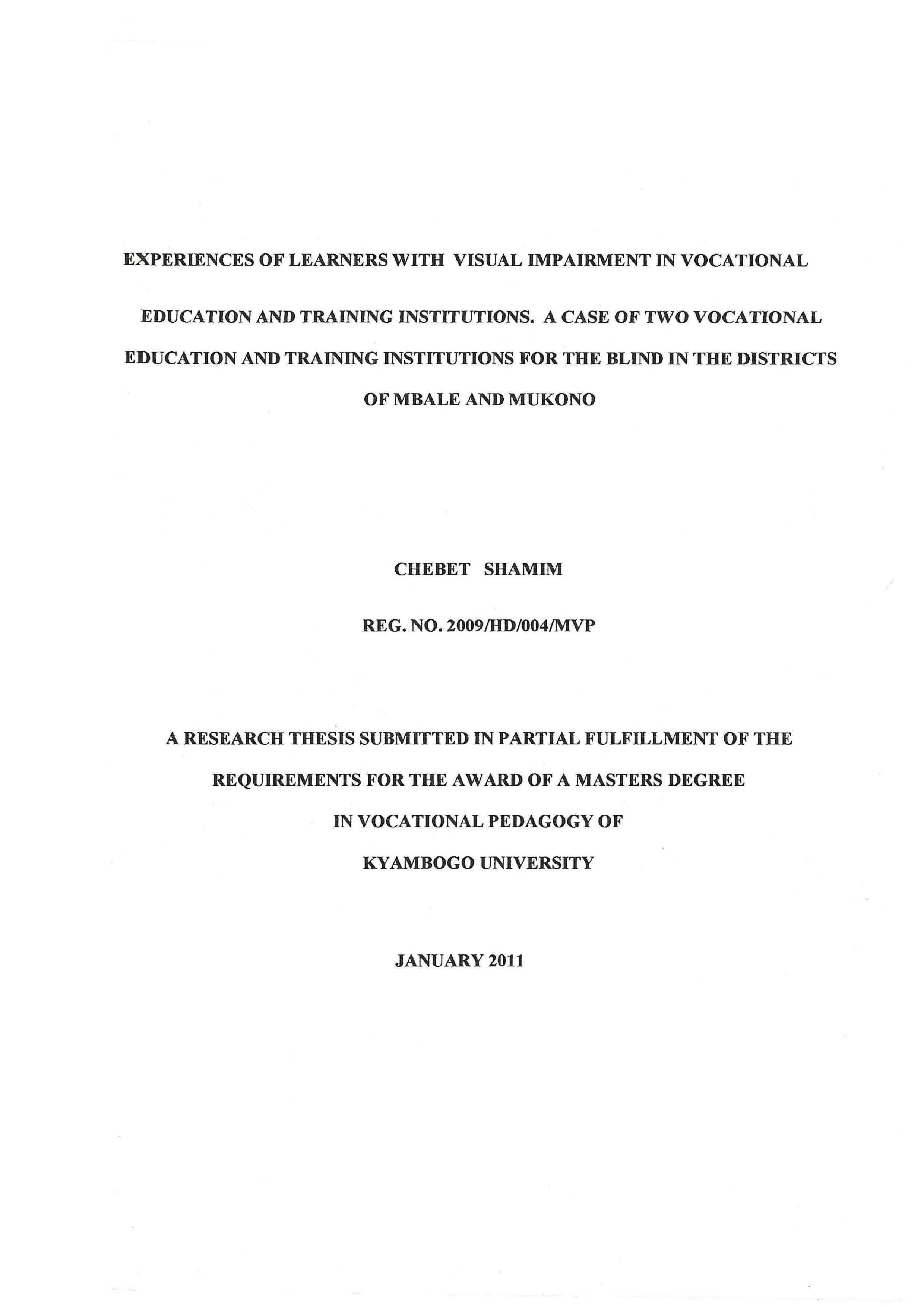| dc.contributor.author | Habib, Kato | |
| dc.contributor.author | Constance, A. N. Nsibambi | |
| dc.date.accessioned | 2024-02-02T08:53:17Z | |
| dc.date.available | 2024-02-02T08:53:17Z | |
| dc.date.issued | 2014 | |
| dc.identifier.citation | Habib, K., & Nsibambi, C. A. (2014). The potential of vocational pedagogy in vocational education and training education. The Role of Digital Literacy in Continuous Based Assessment in Technical Instituions in Uganda, 22(1), 25. | en_US |
| dc.identifier.uri | https://hdl.handle.net/20.500.12504/1584 | |
| dc.description.abstract | Fifteen masters in Vocational Pedagogy thesis abstracts of researches done were analyzed by collating their purposes and findings. The findings indicated that training methods used in many institutions lacked vocational didactics. Training institutions had established frameworks, but needed to be flexible, adaptable and interact more with diverse skills needed in workplaces. Although, vocational programs for people with special needs equipped learners with survival skills but the attitude and empathy of tutors were essential. Training that required exertion necessitated female trainers as role models for female trainees. The hall marks of indigenous knowledge of doing, interaction with others, actual demonstration and verbal instruction with skills masters were found to be similar to components of vocational didactics and could therefore complement vocational training. | en_US |
| dc.language.iso | en | en_US |
| dc.publisher | International Journal of Vocational Education and Training | en_US |
| dc.subject | Vocational Pedagogy | en_US |
| dc.subject | Vocational Education | en_US |
| dc.subject | Training Education | en_US |
| dc.subject | Indigenous knowledge | en_US |
| dc.subject | Training methods | en_US |
| dc.subject | Vocational didactics | en_US |
| dc.title | The potential of vocational pedagogy in vocational education and training education | en_US |
| dc.type | Article | en_US |



